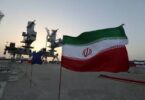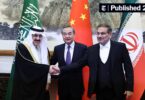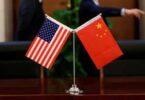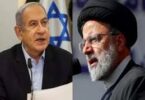Chief of General Staff (CGS) of Armed Forces of the Islamic Republic of Iran, Major General Mohammad Bagheri, along with a high-level delegation visited Pakistan during recent days. During the visit, the Iranian military delegation met with Chief of Army Staff General Qamar Javed Bajwa, Chairman Joint Chief of Staff Committee, General Nadeem Raza and other senior leadership of Pakistan Army. During the meeting with Iranian delegation, COAS General Qamar Javed Bajwa has said that Pakistan and Iran were two brotherly Muslim countries, and their close cooperation was vital for regional peace and stability. According to reports, the two leaders discussed a wide range of issues including the Afghanistan situation, regional security and border management, particularly fencing along Pak-Iran Border. According to Pakistan Army media wing, the two sides agreed on enhancing defence cooperation, joint efforts for regional peace and unified response against terrorism. According to reports, the Iranian delegation expressed desire for further strengthening military to military ties in counter terrorism, Defence and Security and training domains. Both sides urged that common borders should be “Borders of Peace & Friendship” and in that pursuit a closer military and strategic cooperation between the two countries is essential.
Pakistan and Iran, the two brother Muslim countries are tightened in a variety of bonds including religion, history, neighborhood, culture, and values. Similarly, both neighbor states are facing a range of common problems such as border management, terrorism and separatism, Afghanistan issue, smuggling and drug trafficking etc. The similarity of challenges and convergence of interests offer them a great deal of opportunities for mutual cooperation in selected areas. However, Pakistan’s association with the United States and Iran’s inclination toward India have been viewed suspiciously by the two governments during the past. Furthermore, diverging interests in Afghanistan, international sanctions against Iran and poor management of Pak-Iran border contributed a lot toward spring ties between the two countries. The separatist militant groups of both countries successfully used their territories and doubled down their difference over the recent years. After the US pullout from Afghanistan, the geostrategic landscape and regional environment has significantly changed and created new opportunities for mutual cooperation between the two nations. Presently, the new Iranian government and Pakistani leadership are working to develop a sustainable long-term relationship between the two countries. There is a huge prospect of bilateral trade between Iran and Pakistan and both countries have planned to set up border markets at their common border to facilitate barter trade between residents of border areas. According to experts, being security states and involvement of great powers in the region, both nations could not seize the true potential of their bilateral cooperation. Their mutual differences had been exploited by the foreign powers and despite the availability of all resources and opportunities the region remained undeveloped over the past years. After peace in Afghanistan, there is a great opportunity for all regional states to move toward geo-economic culture instead of geo-strategic panorama for the greater benefit of the people of the region. In fact, bilateral engagement of the two nations is the only way forward and this recipe would help them to deal with their common challenges and will pave the path for broader prospects of peaceful neighborhood, developed and prosperous region in the days to come.






